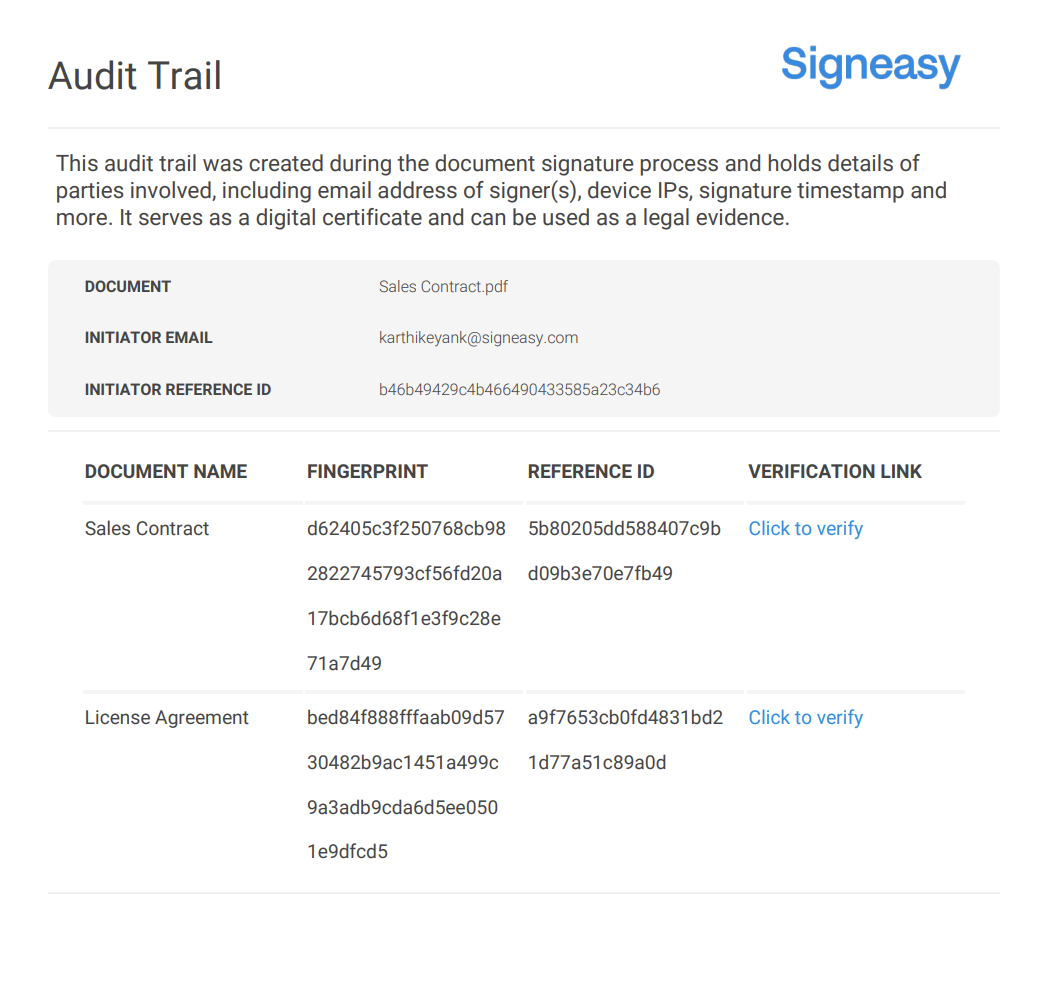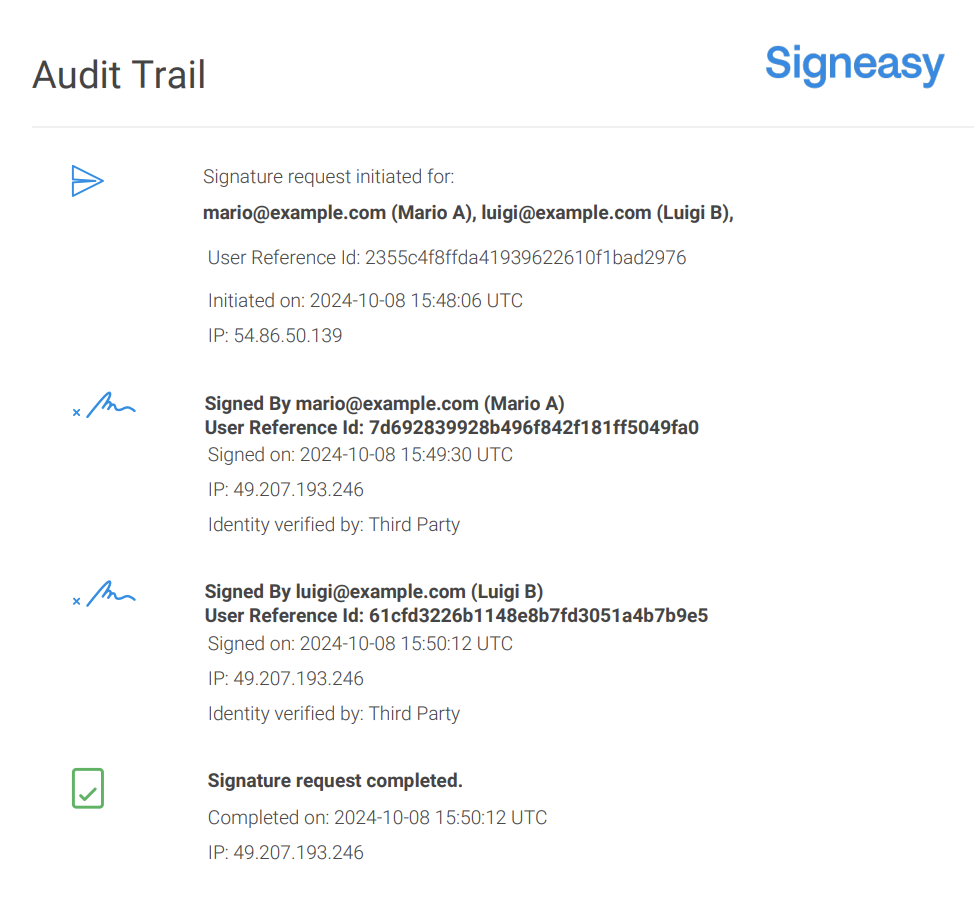Signature Certificate
Audit Trail
An audit trail is a signature certificate from Signeasy that provides details on when each signer in a signature request signed the document and when the request was completed along with the document fi. By default, the audit trail is sent to you via email along with the final signed document (except for embedded signing).
For embedded signature requests, use the Download a signed envelope with certificate endpoint to fetch the PDF of the audit trail.
Sample Audit Trail

Audit trail - Document details

Audit trail - Signing details
Frequently Asked Questions
What does it contain?
| Type | Information |
|---|---|
| Sender information | Last name, first name, ID, email address, organization, and IP address. |
| Signer information | Last name, first name, ID, email address, organization, and IP address for each signer who received the signature request. |
| Signer authentication information | Authentication mode used (e.g., without code, with code sent by SMS) and validation time. |
| Signature information | Context of the signature, including the date the contract was initiated and the date it was completed. |
| Data relating to signed documents: | Document names, fingerprints, IDs, and types. |
| Verification link: | A link to verify the authenticity of a signed contract's copy against the actual signed contract using fingerprint comparison. |
| Trust seal | A tamper-proof digital seal to verify the contents of the contract and protect its integrity, along with the date of the seal and authorization by Entrust (a global certificate agency). Currently available for Signeasy Web only. |
What are the benefits of an audit trail?
Benefit | Description |
|---|---|
Legal validity | The electronic signatures recorded in the audit trail are legally binding and admissible in court, in accordance with the ESIGN Act in the United States and eIDAS in the European Union. Most other countries also recognize electronic signatures for business or personal transactions. |
Security | The audit trail ensures secure processing through 256-bit SSL encryption technology, which safeguards the communication channels between your device and secure servers hosted at Amazon Web Services, which is ISO 27001 compliant. |
Trust | Signeasy is trusted by thousands of companies and millions of individuals across over 150 countries providing a robust and secure fingerprinting and verification links. Additionally, for Web Customers with Trust Seals, each audit trail has information on the digital seal and the timestamp of the tamper-evident X.509 certificate issued to Signeasy by Entrust, ensuring the integrity and authenticity of the document. |
When would you need an audit trail?
An audit trail is necessary in several situations, particularly where accountability, legal compliance, and verification are important.
| Requirement | Description |
|---|---|
| Legal and regulatory compliance | When needing to ensure that electronic signatures are legally valid and meet regulatory requirements, such as compliance with the ESIGN Act in the United States or eIDAS in the European Union. |
| Proof of transaction | To provide a detailed record of actions taken during a signing process, which can serve as evidence in case of disputes or for auditing purposes, such as proving who signed a document, and when. |
| Document Integrity verification | When you need to verify that a document has not been altered after signing. The audit trail contains a trust seal and verification link to confirm the integrity of the signed document. |
| Accountability and tracking | When managing contracts or agreements with multiple parties, an audit trail helps track the document's lifecycle—from initiation to completion—ensuring that all participants are held accountable for their actions. |
| Internal audits and compliance reviews | Organizations may require audit trails for internal audits or compliance reviews to track the proper execution of contracts and verify the authenticity of signatures. |
| Dispute resolution | In case of disagreements or challenges over the authenticity or timing of a signed document, an audit trail serves as verifiable proof of the signing process, including timestamps and signer information. |
Updated 9 months ago